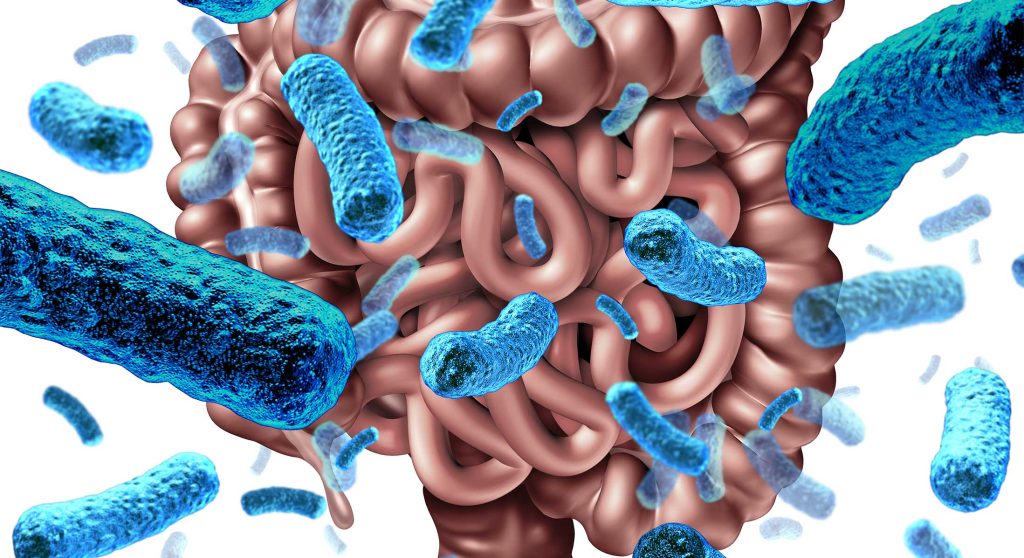Gut health and microbiome research have become prominent fields in medical and nutritional sciences, offering new insights into how the microorganisms residing in our digestive tract influence overall health and wellbeing. The gut microbiome, comprising trillions of bacteria, viruses, fungi, and other microorganisms, plays a crucial role in various physiological processes, including digestion, immune function, and mental health. This article delves into the current state of gut health and microbiome research, its implications, and the future directions of this rapidly evolving field.

Understanding the Gut Microbiome
The gut microbiome refers to the diverse community of microorganisms living in the gastrointestinal tract. These microorganisms interact with each other and with the host, contributing to a balanced and functional digestive system.
- Composition: The gut microbiome is composed of a wide variety of microorganisms, including bacteria, archaea, viruses, and fungi. The bacterial component is particularly significant, with numerous species playing distinct roles in digestion and health.
- Diversity: A diverse microbiome is generally associated with better health outcomes. The variety of microorganisms can contribute to a more resilient and adaptable gut ecosystem.
- Functions: The gut microbiome performs several critical functions, including breaking down complex carbohydrates, synthesizing vitamins, modulating the immune system, and protecting against pathogenic microorganisms.
- Interactions: Microbes in the gut interact with each other and with the host’s cells, influencing processes such as metabolism, inflammation, and nutrient absorption.
Key Areas of Gut Health and Microbiome Research
- Digestive Health: Research has shown that a balanced gut microbiome is essential for effective digestion and nutrient absorption. Dysbiosis, or an imbalance in the microbiome, is linked to digestive disorders such as irritable bowel syndrome (IBS) and inflammatory bowel disease (IBD).
- Microbiome Diversity: Studies suggest that higher diversity in gut bacteria is associated with a healthier digestive system and reduced risk of gastrointestinal diseases.
- Immune Function: The gut microbiome plays a crucial role in modulating the immune system. It influences immune responses and helps maintain a balanced immune system, potentially impacting autoimmune conditions and allergies.
- Immune System Modulation: Research indicates that certain gut bacteria can enhance or suppress immune responses, affecting overall immune health and disease susceptibility.
- Mental Health: The gut-brain axis is a bidirectional communication pathway between the gut and the brain. Emerging research suggests that the gut microbiome may influence mental health conditions such as depression and anxiety.
- Gut-Brain Connection: Evidence shows that microbiome composition can affect mood and cognitive function, highlighting the importance of gut health in mental wellness.
- Metabolism and Obesity: The gut microbiome affects metabolism and has been linked to obesity and metabolic disorders. Certain microbiome profiles may influence fat storage, appetite regulation, and energy balance.
- Metabolic Regulation: Studies have found that changes in the microbiome can impact metabolic processes and contribute to weight gain or loss.
- Diet and Nutrition: Diet significantly impacts the composition and health of the gut microbiome. High-fiber foods, prebiotics, and probiotics can positively influence microbiome diversity and function.
- Dietary Interventions: Research supports the role of diet in shaping the gut microbiome, with specific nutrients and dietary patterns affecting microbial communities.
- Antibiotics and Microbiome Disruption: Antibiotics can disrupt the gut microbiome by killing beneficial bacteria, potentially leading to long-term consequences for gut health.
- Antibiotic Impact: Studies show that antibiotic use can alter microbiome diversity and increase susceptibility to infections and chronic diseases.
- Personalized Medicine: Advances in microbiome research are paving the way for personalized medicine approaches. Understanding individual microbiome profiles can lead to tailored dietary and therapeutic interventions.
- Customized Therapies: Personalized approaches based on microbiome analysis can optimize treatment for various conditions, including digestive disorders and metabolic diseases.

Implications for Health and Wellness
- Preventive Health: Maintaining a healthy gut microbiome through diet, lifestyle, and probiotics can help prevent various health issues, including digestive disorders and metabolic diseases.
- Treatment of Diseases: Microbiome-based therapies, such as fecal microbiota transplantation (FMT) and targeted probiotics, are being explored as treatments for conditions like Clostridium difficile infection and IBS.
- Dietary Recommendations: Integrating prebiotics and probiotics into dietary recommendations can support gut health and improve overall wellbeing.
- Mental Health Interventions: Addressing gut health may offer new avenues for managing mental health conditions and enhancing cognitive function.
- Research and Innovation: Ongoing research into the gut microbiome continues to reveal new insights and potential interventions, driving innovation in healthcare and nutrition.
Future Directions in Gut Health and Microbiome Research
- Advanced Technologies: Emerging technologies, such as metagenomics and metabolomics, are providing deeper insights into the gut microbiome and its interactions with the host.
- Longitudinal Studies: Long-term studies are needed to understand how changes in the gut microbiome over time affect health and disease.
- Personalized Approaches: Continued research will enhance personalized approaches to gut health, including tailored dietary recommendations and microbiome-based therapies.
- Public Health Initiatives: Integrating gut health research into public health initiatives can promote preventive measures and improve population health outcomes.
- Ethical Considerations: As microbiome research advances, addressing ethical considerations related to data privacy, informed consent, and access to treatments will be essential.

Conclusion
Gut health and microbiome research are reshaping our understanding of digestive wellness and its impact on overall health. The gut microbiome plays a vital role in various physiological processes, including digestion, immune function, and mental health. Ongoing research continues to uncover the complexities of the microbiome and its influence on health, offering new opportunities for personalized medicine and preventive care. As the field progresses, integrating microbiome insights into health practices and policies will be crucial for advancing our approach to holistic wellness and improving quality of life.


